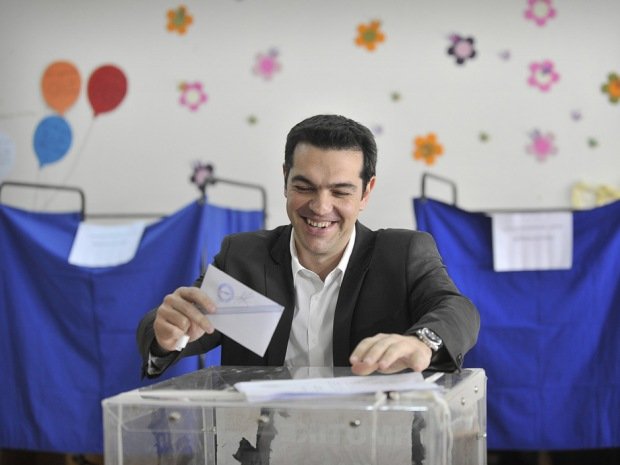Greece elections 2012: world leaders welcome New Democracy victory
World leaders have welcomed the narrow election victory of Greece’s broadly pro-bailout New Democracy party and urged Athens to form a cabinet quickly.
The eurozone group said reforms were Greece’s “best guarantee” to overcome tough economic and social challenges.
The US stressed that it was in everyone’s interests “for Greece to remain in the euro area”.
The Syriza party, which rejected the bailout terms and came a close second, said it would lead the opposition.
With more than 99% of votes counted, interior ministry results put New Democracy on 29.7% of the vote (129 seats), Syriza on 26.9% (71) and the socialist Pasok on 12.3% (33). There are 300 seats in parliament.
Greek voters went to the polls on Sunday following May’s inconclusive elections.
New Democracy leader Antonis Samaras said Greeks had chosen to stay in the euro and called for a “national salvation government”.
Syriza’s leader Alexis Tsipras said his party would not take part in the government, and would instead become a powerful anti-austerity voice in the opposition.
The vote was watched around the world, amid fears that a Greek exit from the euro could spread contagion to other eurozone members and deepen the turmoil in the global economy.

New Democracy leader Antonis Samaras said Greeks had chosen to stay in the euro and called for a "national salvation government"
Tough austerity measures were attached to the two international bailouts awarded to Greece, an initial package worth 110 billion Euros ($138 billion) in 2010, then a follow-up last year worth 130 bn euros.
Stock markets responded positively to Sunday’s results, with share prices up in Asian trading.
In a statement on behalf of the 17 eurozone finance ministers, Luxembourg Prime Minister Jean-Paul Juncker said that “continued fiscal and structural reforms are Greece’s best guarantee to overcome the current economic and social challenges and for a more prosperous future of Greece in the euro area”.
In a joint statement, European Commission President Jose Manuel Barroso and European Council President Herman Van Rompuy also hailed the result, and expressed hope that a government would be formed quickly.
German Chancellor Angela Merkel telephoned Antonis Samaras to congratulate him on his victory.
A German government statement said she had “stated that she would work on the basis that Greece will meet its European commitments”.
Antonis Samaras said that the Greek people had voted to stay in the eurozone.
“There is no time to waste,” he said.
“A national salvation government must bring economic growth and reassure Greeks the worst is over.”
He added: “There will be no more adventures. Greece’s place in Europe will not be put in doubt,” promising that Athens would “honor its obligations.”
It appears Antonis Samaras wants to press ahead with spending cuts demanded by the country’s international creditors.
European leaders have warned that if the new Greek government rejects the bailout, the country could be forced to abandon the single currency.
New Democracy should be able to build a majority coalition with the socialist Pasok, benefiting from a rule which gives the leading party 50 extra seats in the 300-seat chamber.
However, coalition talks may not be easy.
In addition to Syriza’s showing, four other parties which oppose or want a radical overhaul of the bailout look set to take between 60 and 70 seats. They include the far-right Golden Dawn, which has about 7% of the vote.
New Democracy and Pasok have said they will keep the bailout in a renegotiated form.
The leader of Pasok, Evangelos Venizelos, proposed a broad four-party coalition including New Democracy, Pasok, the Democratic Left and Syriza.
“No decision can be taken without this national unity,” he said.
[youtube 7WBPREtams0]

